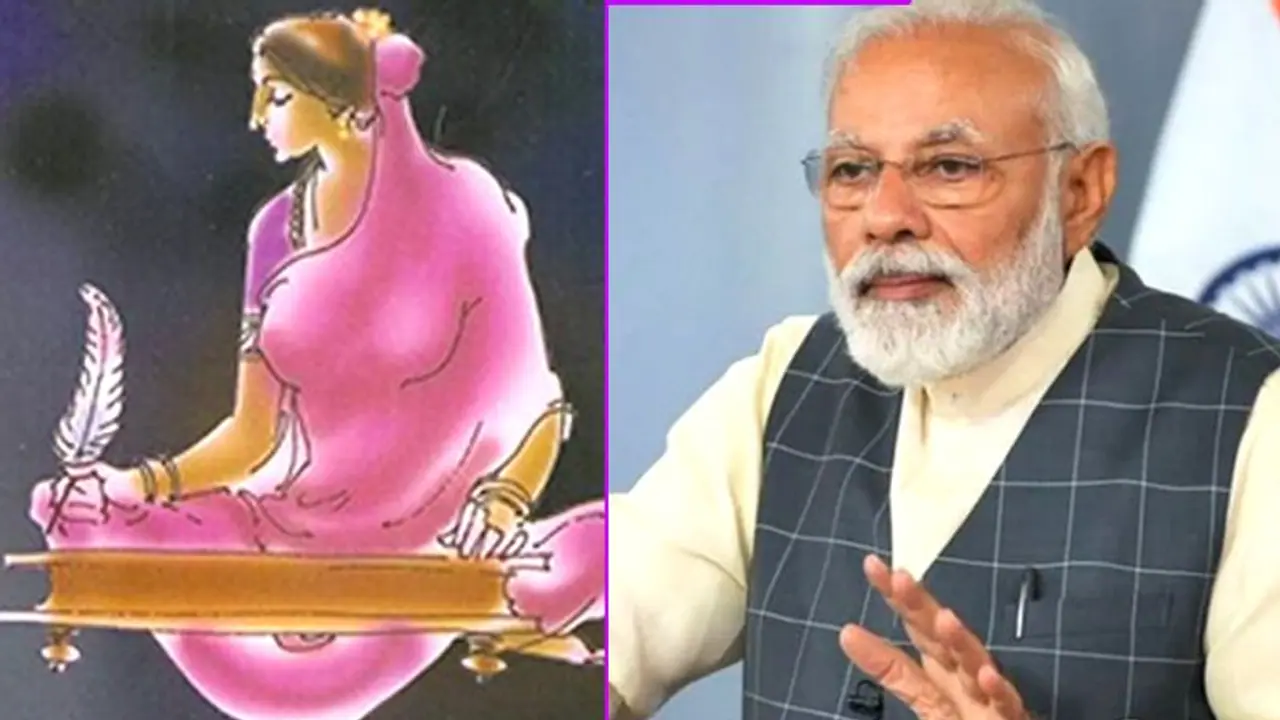PM Modi paid glowing tributes to India’s daughters in his Mann Ki Baat speech and even read out a verse penned by female Kannada poet Sanchi Honamma. We give you more details about the poet’s influence on the society.
Bengaluru: In his monthly Mann ki Baat address to the nation, Prime Minister Narendra Modi extolled the daughters of India as Lakshmis of India.
The PM had urged everyone to celebrate this Diwali honouring the feats of Indian women. This time, he narrated a few anecdotes (gleaned from the social media) of how Indian women have achieved great things in spite of facing difficulties.
The PM also praised a Kannada poetess Sanchi Honnamma.
He said, "A famous poet of the seventeenth century, Sanchi Honnamma wrote a poem in Kannada depicting the same spirit about Bharat ki Laxmi, that we are discussing today. This poem consists of beautiful expressions.”
Translating the poem into Hindi language, Modi said: " The poem means Himvanta got fame because of his daughter Parvati, Rishi Bhrigu got fame because of his daughter Laxmi and King Janak got fame because of his daughter Sita."
So who is Sanchi Honnamma?
As the PM said, she was a 17th century poet from Yelandur, near Chamarajanagar of Karnataka state. She worked in the court of king. Her work included providing betel nuts and other condiments to the king.
Her magnum opus was Hadibadeya Dharma which details the duties of a faithful wife.
This work of hers, won her many accolades. It is in nine sections, has 479 stanzas, and is written in the sangatya metre. Despite being employed as a betel bag bearer and as a maid to Queen Devajammani, she claimed Alasingaraya, a court poet, her Guru.
More about Hadibadeya Dharma
The author is caught in a dilemma between her inner feelings and the value system imposed from above. She does speak about gender bias and makes bold to say that it is not a loss if one begets a daughter. To say that the birth of a son is nothing special, needed some courage during those days. She has culled out her material from religious texts such as the ‘Manusmriti’ and literary epics like the ’Ramayana’ and the ‘Mahabharatha’. She sets out to create a simple code of conduct for a newly married woman in a transparent style. The mode of narration is persuasive and the advice sounds very appropriate within that frame work. In a way this shows the hollow nature of a humanistic approach in a demanding society. Of course there is an undercurrent of sorrow and disappointment. One finds thinly veiled instances of feminine angst. She has not hesitated to give advice to men also regarding the treatment of women folk.
The above details were extracted from ShastriyaKannada.org
